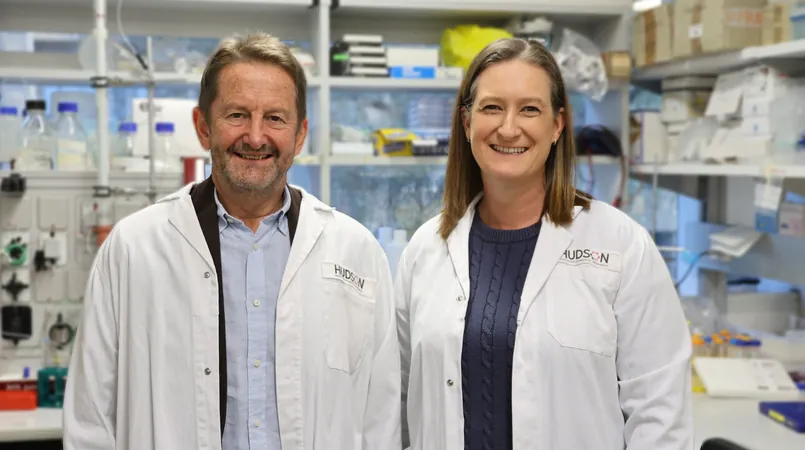
Unlocking Better Healthcare: The Critical Fusion of Sexual Health and HIV Care
2025-07-14
Author: Ming
At the forefront of global health discussions, a pivotal panel at the International AIDS Society (IAS) 2025 meeting in Kigali, Rwanda, revealed daunting challenges to integrating HIV care with sexual health services. Experts emphasized that overcoming funding hurdles, stigma, and knowledge gaps is essential for providing comprehensive care.
Dr. Andrew Grulich, leading the HIV Epidemiology and Prevention Program at The Kirby Institute, highlighted that the World Health Organization (WHO) aims for person-centered care and the eradication of pandemics threatening public health, including HIV and sexually transmitted infections (STIs). Yet, the prevailing stigma surrounding these topics poses a significant barrier to progress.
Grulich pointed out the reticence of political leaders to engage in conversations about sexual health. "In many countries, discussing sex is taboo, even in UN forums, which heavily hampers our ability to advance these critical issues," he asserted.
Mitchell Warren, executive director of AVAC, raised alarm over the impact of USAID's defunding as of January 2025, claiming it jeopardizes both funding and care. With only PEPFAR operational, assistance such as PrEP is now restricted mainly to pregnant or breastfeeding women, drastically affecting comprehensive care options.
Warren lamented, "The USAID that once pioneered discussions not just in HIV but also contraception and family planning is now dismantled. This fragmentation detracts from people-centered health approaches." One such casualty is Thailand's Tangerine Clinic, which serves transgender clients. Since the funding cut, client visits have plummeted by over 20%, compelling them to pay for previously covered services and leaving vital mental health needs unmet.
In Kenya, Dr. Felix Mugaka from the Kenya Medical Research Institute is pioneering a groundbreaking initiative merging HIV prevention, contraception, and STI testing in retail pharmacies. This approach is responding to significant barriers like long wait times and restricted hours in government clinics, making pharmacies a popular first stop for healthcare, particularly for women seeking contraception.
Deborah Anderson, a professor at Boston University, cited alarming statistics: "Half of all pregnancies globally are unintended, and 95% of these occur among women who do not utilize modern contraceptives regularly or correctly. This underscores the urgent need for accessible health solutions.”
Warren concluded emphatically, stating, "We can't revert to January 19. We've experienced seismic shifts, and our strategies must adapt to build a more resilient and inclusive healthcare system."



 Brasil (PT)
Brasil (PT)
 Canada (EN)
Canada (EN)
 Chile (ES)
Chile (ES)
 Česko (CS)
Česko (CS)
 대한민국 (KO)
대한민국 (KO)
 España (ES)
España (ES)
 France (FR)
France (FR)
 Hong Kong (EN)
Hong Kong (EN)
 Italia (IT)
Italia (IT)
 日本 (JA)
日本 (JA)
 Magyarország (HU)
Magyarország (HU)
 Norge (NO)
Norge (NO)
 Polska (PL)
Polska (PL)
 Schweiz (DE)
Schweiz (DE)
 Singapore (EN)
Singapore (EN)
 Sverige (SV)
Sverige (SV)
 Suomi (FI)
Suomi (FI)
 Türkiye (TR)
Türkiye (TR)
 الإمارات العربية المتحدة (AR)
الإمارات العربية المتحدة (AR)